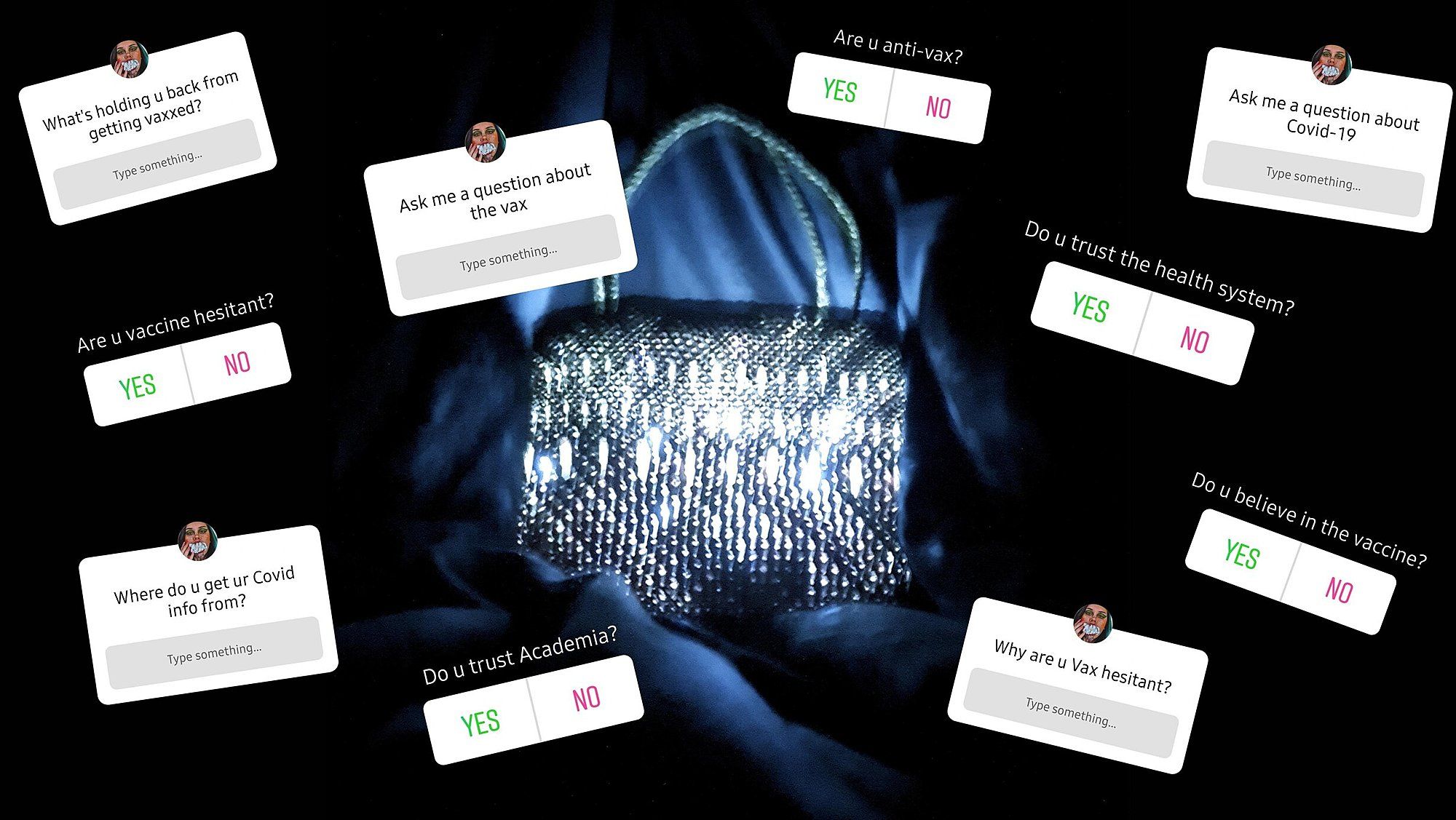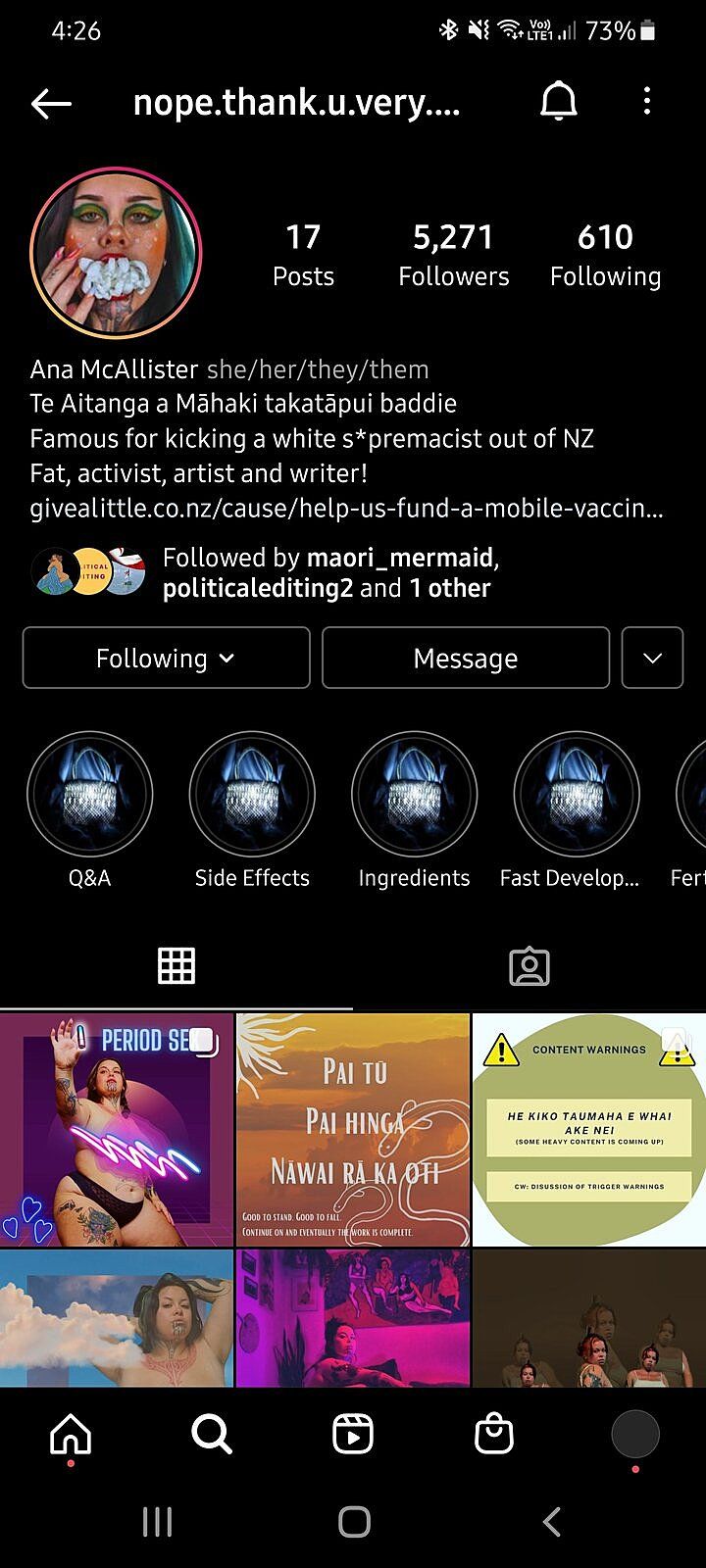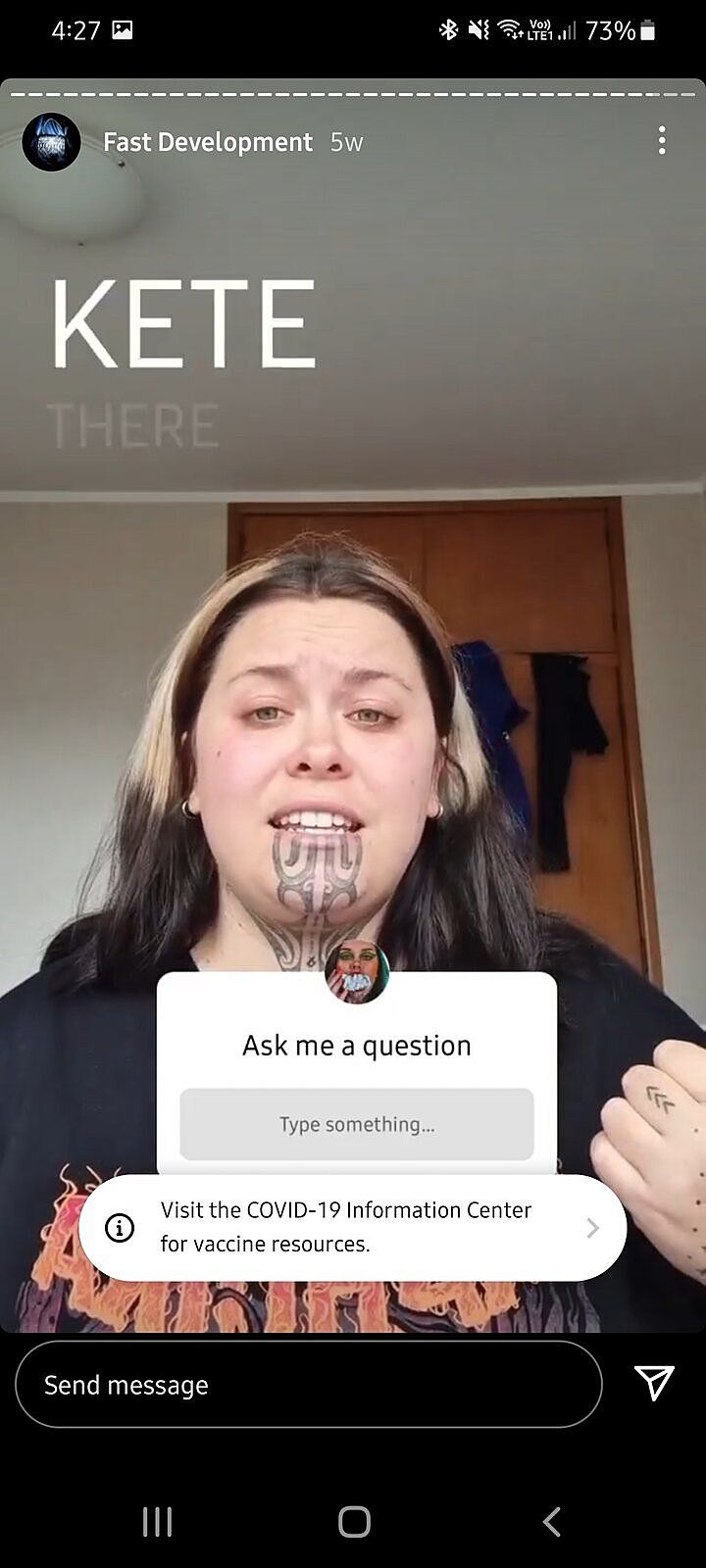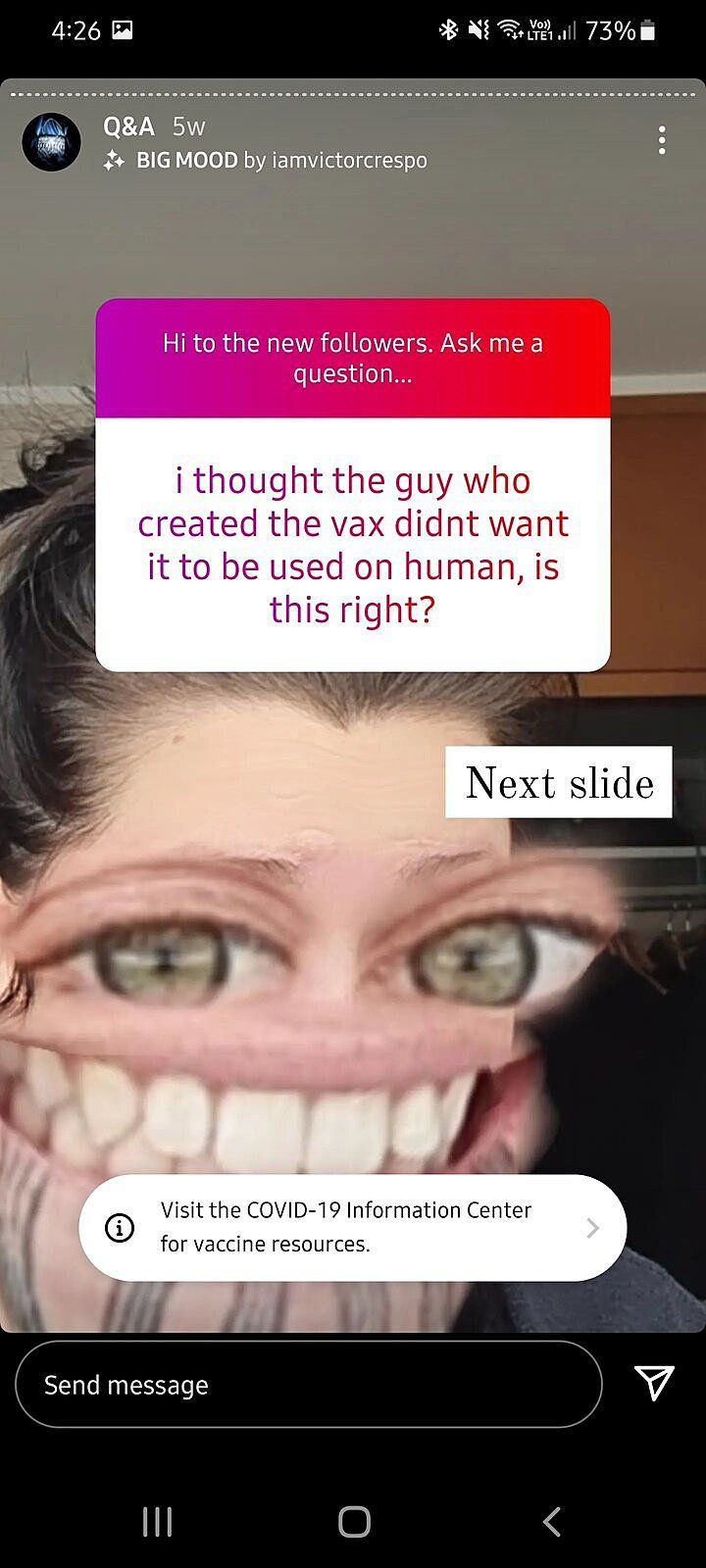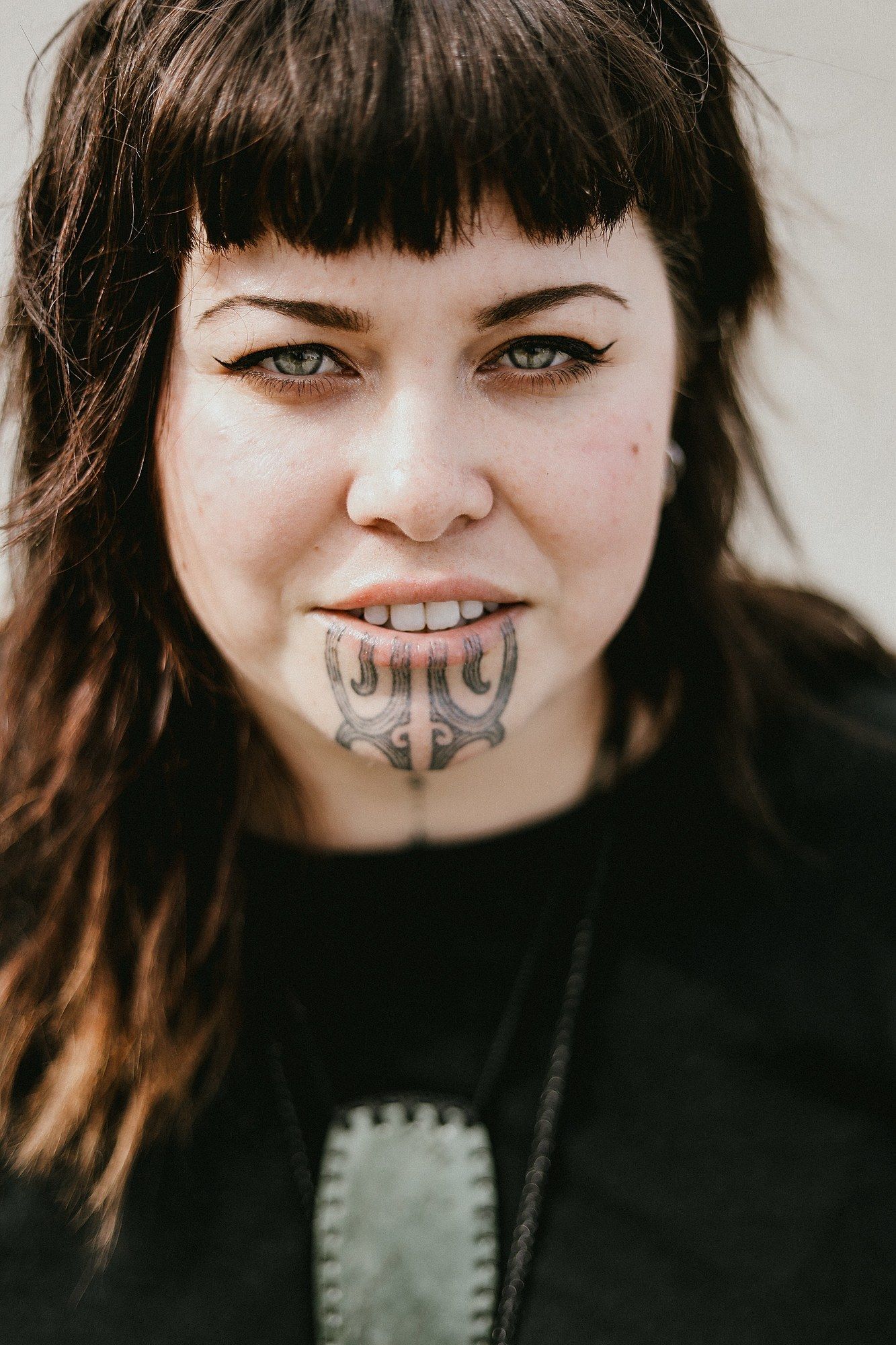Kete o ngā Vax
Ana McAllister uses her social media to educate Māori on the Covid-19 vaccination.
The majority of current Covid-19 infection cases are Māori, who are also some of the faces we see at lockdown and vaccination protest marches. All of this makes me feel scared and helpless, so, like any Māori activist, I decided to do something about it. I researched people's fears and created a ‘kete of knowledge’ using the highlights and stories archive on my Instagram. The highlights cover image is an old photograph I had taken, of light shining through the weave of a kete to hold knowledge around the virus, the vaccines, and the world we now live in.
I come from an arts background but spent a regrettably decent chunk of my life in academia, so I have experience digesting dense academic information. I also have a platform on Instagram and connections with scientists on Twitter. This has given me a set of skills that I can use to kōrero with vaccine-hesitant Māori about what's holding them back. All of these skills are really important for these kinds of conversations. However, the most important skill is kindness. When opinions are becoming more and more polarised, it’s easy to get angry and frustrated with those who are unvaccinated. I want to note that this is a privileged position for me to take. Due to health conditions, many people now have to cut off friends and whānau to protect their own lives.
*
With the government's harsh step away from eliminating Covid-19, Māori are left as one of the most vulnerable parts of our communities. Although Māori people are only 14% of the population, as of October 21 they have the highest number of active Covid-19 cases. Only 57.6% of Māori have received their first Covid-19 vaccination, and 32.7% have had their second. This is compared to 81.1% of Pākehā who have received the first vaccination and 51.2% the second. The median age for Māori is 25 and for Pākehā it is 41. As the Māori population is younger than other groupings, many were among the last eligible for vaccinations. Vaccination rates are also the lowest for rangatahi Māori (aged 12–29).
Māori vaccine hesitancy has a complex whakapapa all the way back to colonial New Zealand. So what is this whakapapa?
Healthcare
The New Zealand healthcare system is built on racist ideologies, and this is an inescapable fact.
“For 150 years we have known about the higher rates of Māori illness and the lower rates of Māori survival into old age, and from time to time we have sought to remedy the injustices” – Mason Durie
These inequalities mean that, today, healthcare is at best inaccessible and at worst actively harmful. So, of course, Māori distrust the healthcare system. We only have to look at the impacts of the 1918 influenza outbreak, in which Māori died at a rate seven times that of non-Māori because of the inadequate response from the healthcare system.
*
Government
The lasting legacy of a settler government that was quite untrustworthy (land confiscation, assimilation policies and Parihaka, among many other injustices) is that some Māori today do not trust the government. Even in recent years, we’ve had debacles like the Foreshore and Seabed Act 2004 and the Tūhoe Raids, and one of the most significant movements on social media for my generation has been Ihumātao. Inaction and straight-up lack of interest in Ihumātao reminded Māori that the current government is centrist at best.
Since the 19th century, successive governments have committed violent colonial acts on Māori, so after continual abuse, why would Māori trust them now when they’re told to get a vaccination?
After continual abuse, why would Māori trust them now when they’re told to get a vaccination?
Science
Science is the third piece of this puzzle. The thing I found so shocking was the huge gap in understanding about the science of vaccination. I have had multiple people come to me, asking if the vaccine would change their DNA, or repeating sentiments that it was created for Western people, and therefore wouldn't work on Māori. This was really shocking.
As someone who only did NCEA Level 1 Biology to go on the field trip to Goat Island, the fact that some people don’t even understand how vaccines impact us on a biological level shows a huge issue in our education system. If the gap of understanding is that vast, then it makes total sense that some Māori believe conspiracy theories that others of us know to be completely outlandish.
*
Our people are coming to conclusions after gathering the information that is available and accessible to them, which is information from social media. Not information from science journals, government websites, or even mainstream news – that information is inaccessible. In my opinion, this is the fault of science, academia and government. Not the fault of the people who consume information. It isn’t fair to say, “Vaccine-hesitant people are stupid because they believe silly things.” They are coming to conclusions based on the available and accessible information and data.
This kind of analysis from the available information could look like research, though it’s not based on science. But what should we expect when expert research is inaccessible? What we need to do to get more Māori vaccinated is provide the vaccine hesitant with more information, in accessible language, on a platform that they use regularly. Which is what I did.
*
Vaccine hesitancy has exposed how necessary it is for the sciences and academia, in general, to get off their high horses and come back to where the people are. If not even your abstract is in plain language and able to be read by anyone off the street, then you’re only writing for other academics. This kind of gatekeeping is not only classist but ableist and inherently racist.
Vaccine hesitancy has exposed how necessary it is for the sciences and academia to get off their high horses
Some people are putting in excellent work, like Siouxsie Wiles, who’s a great science communicator, and organisations like Te Pūnaha Matatini, who are also good at making unbiased information available to the public. But the Covid-19 vaccine hesitancy that is putting Māori lives in danger is a direct result of colonial governmental decision-making and the inability of academia and the sciences to work for the people.
Right now, this can be really hard. Unvaccinated people are currently what’s standing between us and summer as we’d like it to be. But the government and science inaccessibility have put us in this position. Understanding that context is vital. People are scared, vaccinated and unvaccinated alike, and we all need to work against that fear to support one another.
Feature image: Ana McAllister
